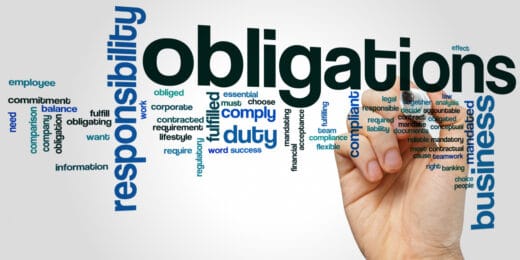You’ve set up your limited company and now have a list of company dates. You don’t know what they are and you don’t know what happens if they pass by. Don’t worry. In this blog, we’ll define the company dates, look at the ramifications of missing them, and show you how we can help. Let’s get started.
Confirmation statement dates
The confirmation statement is an annual filing obligation for all active limited companies. It’s used to confirm whether the information held at Companies House is up-to-date.
Example
- You register a company on 01/08/2024
- The statement date is set as 31/07/2025
- The review period is 01/08/2024 – 31/07/2025
- You should file the confirmation statement no later than 14/08/2025 – the statement ‘due by’ date
- The next confirmation date would be 31/07/2026 with a next statement due by 14/08/2026
The statement date is the period that your confirmation statement should report up to. It is automatically set as the anniversary of your incorporation, minus one day.
A company’s first confirmation statement should cover the period from the incorporation date, up to the statement date (the review period). If your company has previously filed a confirmation statement, the review period will cover the last statement date, up until the next statement date.
The statement due by date is when the confirmation statement must be filed by. This falls 14 days after the confirmation date.
You can file an early confirmation statement if you wish. For example, you may have had a shareholding change and want to notify Companies House. This is permitted but will impact the statement date for your following confirmation statement.
Confirmation statement penalties
If the statement due by date passes without action you are in breach of the Companies Act 2006 and so breaking the law. Officers could be penalised by up to £5,000 each and your company will eventually be struck off the register.
Fortunately, none of this happens immediately – if you do let the deadline pass, act swiftly to avoid costly penalties and company closure.
Annual account dates
Annual accounts are a filing obligation made up of financial information. It doesn’t matter if your company is trading or not, you must still file annual accounts with Companies House and HMRC. If your company has never traded, you can file a set of accounts known as dormant company accounts.
Annual accounts must be filed with Companies House by the accounts ‘due by’ date. The first set of accounts should be filed 21 months from the incorporation date. Subsequent accounts should be filed 9 months from the accounting reference date.
Example
- You register a company on 01/08/2024
- The accounting reference date is set as 31/08/2025
- You should file the first set of annual accounts no later than 01/05/2025 – the accounts due by date
- The following accounting reference date is 31/08/2026 and the next accounts due by date would be 31/5/2027
The accounting reference date (ARD) indicates the period that annual accounts should report on. It is automatically the last day of the incorporation month.
You can change your company’s accounting reference date; however, this will impact the financial year for your company.
Annual account penalties
You’re breaking the law and face paying a late filing penalty if no action is taken by the accounts due by date. The total of the penalty depends on how late you file (this can go up £1,500 and will double if you’re late twice in a row).
Choosing not to file at all will result in company closure and, potentially, criminal prosecution.
Corporation Tax and Company Tax Returns
If your company is trading, you need to know about Corporation Tax, Company Tax Returns, and the associated deadlines. This is because UK companies are required to pay Corporation Tax on profits they make.
A Company Tax Return is a report – produced by you – that outlines how much Corporation Tax you need to pay. Corporation Tax must be paid before the corresponding Company Tax Return is delivered.
- You will need to register for Corporation Tax with HMRC within 3 months of starting to trade
- You must pay Corporation Tax 9 months and 1 day after the end of your accounting period
- You need to prepare and file a Company Tax Return with HMRC within 12 months of the end of your accounting period
Corporation Tax and Company Tax Return penalties
The penalty for late payment of Corporation Tax depends on the amount of outstanding tax – or ‘potential lost revenue’. However, HMRC will listen to any ‘reasonable excuse’ you may have for missing the deadline.
If you miss your Company Tax Return deadline you will need to pay a £100 penalty, which then increases depending on how late you are, and how often you are late.
Important information about your Corporation Tax accounting period
Your accounting period for Corporation Tax begins on the day that you start trading. This may or may not be the date that your company was formed. The accounting period ends on the aforementioned accounting reference date.
However, the accounting period can not be longer than 12 months. This means, if you started trading in the same month that your company was formed, you will have to prepare two Company Tax Returns.
Example
- You register a company on 01/08/2024
- You start trading on 01/08/2024
- Your first accounting period for Corporation Tax begins on 01/08/2024 and ends on 31/07/2025
- Your second accounting period for Corporation Tax begins on 01/08/2025 and ends on 31/08/2025
- The following accounting period for Corporation Tax begins on 01/09/2025 and ends on 31/08/2026
Finally, where to view your company dates
If you formed your limited company with Rapid Formations, you will find your confirmation statement and annual account dates in your free Online Client Portal. If you didn’t form with Rapid Formations, you can locate the key dates at Companies House.
When it comes to your Corporation Tax and Company Tax Returns, you can view certain information from your Government Gateway account (if you haven’t got an account yet, this will be created when you register for Corporation Tax).
We hope you found this post helpful. Leave a comment if you have any questions and we’ll get back to you as soon as possible.
Please note that the information provided in this article is for general informational purposes only and does not constitute legal, tax, or professional advice. While our aim is that the content is accurate and up to date, it should not be relied upon as a substitute for tailored advice from qualified professionals. We strongly recommend that you seek independent legal and tax advice specific to your circumstances before acting on any information contained in this article. We accept no responsibility or liability for any loss or damage that may result from your reliance on the information provided in this article. Use of the information contained in this article is entirely at your own risk.








Join The Discussion
Comments (2)
I’m not sure what the company confirmation statement dates are, but I’m going to have to make sure I file one soon. I’m also curious about the next statement due date.
Hi Joanna, thank you for your kind message.
The next statement due date is the date when your next confirmation statement should be filed by. We would suggest you read this blog for more information on the next statement due date: https://www.rapidformations.co.uk/blog/annual-confirmation-statement/
Kind regards,
The Rapid Formations Team